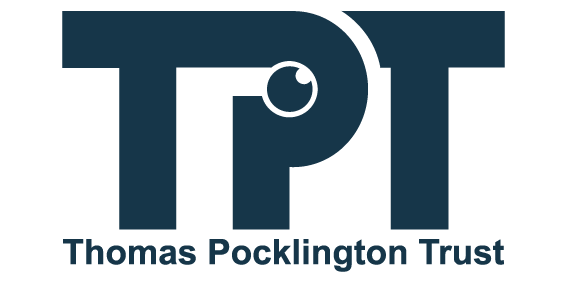Lena Welch, a valued member of the Cornwall College Group, describes her employer as not just helpful and equal but also open-minded. She said: “Right from the beginning they have been incredibly supportive and have recently promoted me to a more senior role”.
Lena, 32, was born with cerebral palsy which impacted the nerves in her brain and caused Nystagmus. She has no vision in her left eye but some close distance vision in her right.
In July 2016, Lena started her career at Bicton College as a student adviser, responsible for student transport and course funding. Her role involved assisting students with bus passes, securing free college meals, and facilitating funding for transport.
Situated in East Devon, Bicton College is part of the Cornwall College Group, the largest education and training provider in the region, boasting multiple campuses, skills centres, and partner colleges.
This year marked a significant milestone in Lena’s career as she was promoted to the role of Residential Bursary and Admin Officer for the entire Cornwall College Group. Lena said: “The job came up in January. I deliberated whether I should move up to role but I just went for it! I had an interview and was offered the job. You’ve just got to go for it!”
Lena relies on a set of assistive technologies, including Zoom Text magnification software, Dragon speech recognition software, and Humanware Prodigi, which magnifies and reads written text aloud. She said: “Dragon is great for me as I have a tremor in my hand. So, rather than having to type everything, Dragon inputs the text as I speak. Humanware Prodigi works well but struggles with any handwritten content on paper-based forms”.
Lena’s access to these technologies was facilitated through the government’s Access to Work scheme, which provides support for disabled employees in the form of special equipment, adaptations, support worker services, and assistance with transportation.
Lena’s new role oversees bursaries for residential accommodation across all Cornwall College Group sites, involving tasks such as assessing claims, managing budgets on spreadsheets, processing credit notes and purchase orders, and communicating with students. While many of these processes remain paper-based, Lena is eager to modernise and streamline them.
She explained, “When I joined Bicton College, the system for processing student transport was also paper based. It was slow, inefficient and meant that I needed a sighted colleague for me to read any handwritten elements. Following my recommendations, this system went online – which sped up the process significantly. I think my new role could also benefit from reducing the paper-based elements and moving the applications online to streamline the system.”
Lena expresses gratitude for the supportive environment at Cornwall College Group. “Right from the start my boss has been really understanding and accommodating. He made a point of showing me around campus to familiarise me with the layout and the college painted the steps in yellow to help with contrast. I can take my guide dog, Peter, out for comfort breaks when he needs them and, because I have my own office, he doesn’t need to be tethered – he can get up and walk around.”
Reflecting on her previous employment experiences, Lena recalls working in a call centre where she had to keep her guide dog tethered to her desk. She decided to resign when she made the life-changing decision to relocate with her family to the south coast.
At Cornwall College Group, Lena says “My colleagues don’t see me as a person with a disability. They treat me the same as everyone else. I can do the job as well as anyone else – I just need a bit of technology.”
Lena studied a Business and PA course at college but believes it was not her qualifications that secured her the role at Bicton College. Rather, it was her prior experience previous experience and how she came across in the interview. She said: “I would advise other blind and partially sighted people looking to start their careers to get help and advice to do your applications. Speak with confidence to your prospective employer. Be open about your disability and how you would deal with the situation. Reassure them that you can overcome obstacles.”
“Employers need to see past the perceived obstacle of the disability. And the government’s Access to Work scheme means the cost of providing assistive technology does not fall to employers. So, the cost is minimal.”
As for Lena’s future, she is open to new opportunities but is resolute in her principle: “If I can’t handle the job by myself, I don’t want to do it.”
Living in Sidmouth with her parents, Lena loves swimming and kayaking in the sea, enjoying nature through walking and activity holidays. Her adventures have taken her canyoning and white water rafting in Costa Rica.
About Nystagmus
Nystagmus is a vision condition characterised by repetitive, uncontrolled eye movements that often result in reduced vision, depth perception, and can affect balance and coordination. These involuntary eye movements can occur from side to side, up and down, or in a circular pattern.


